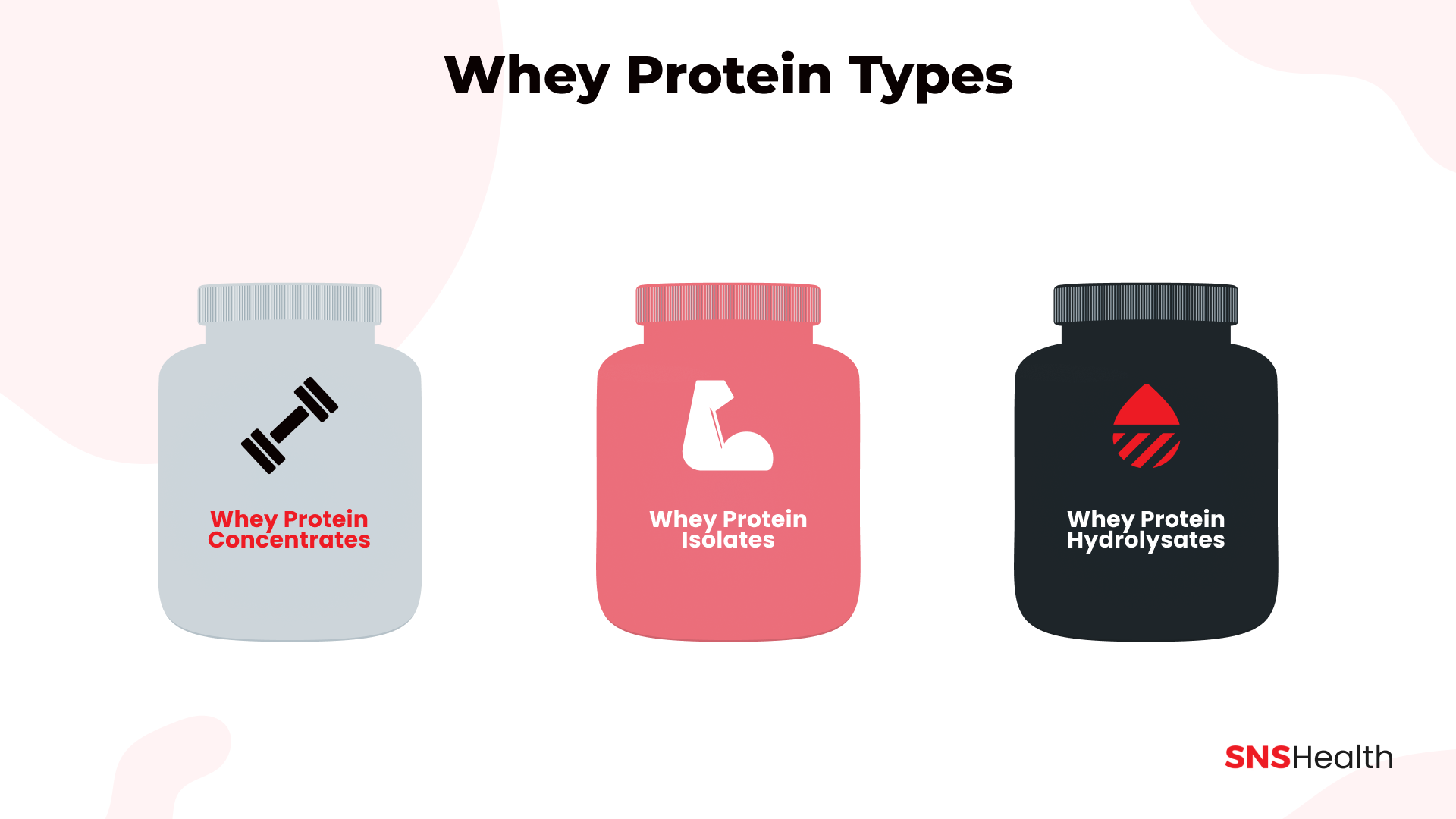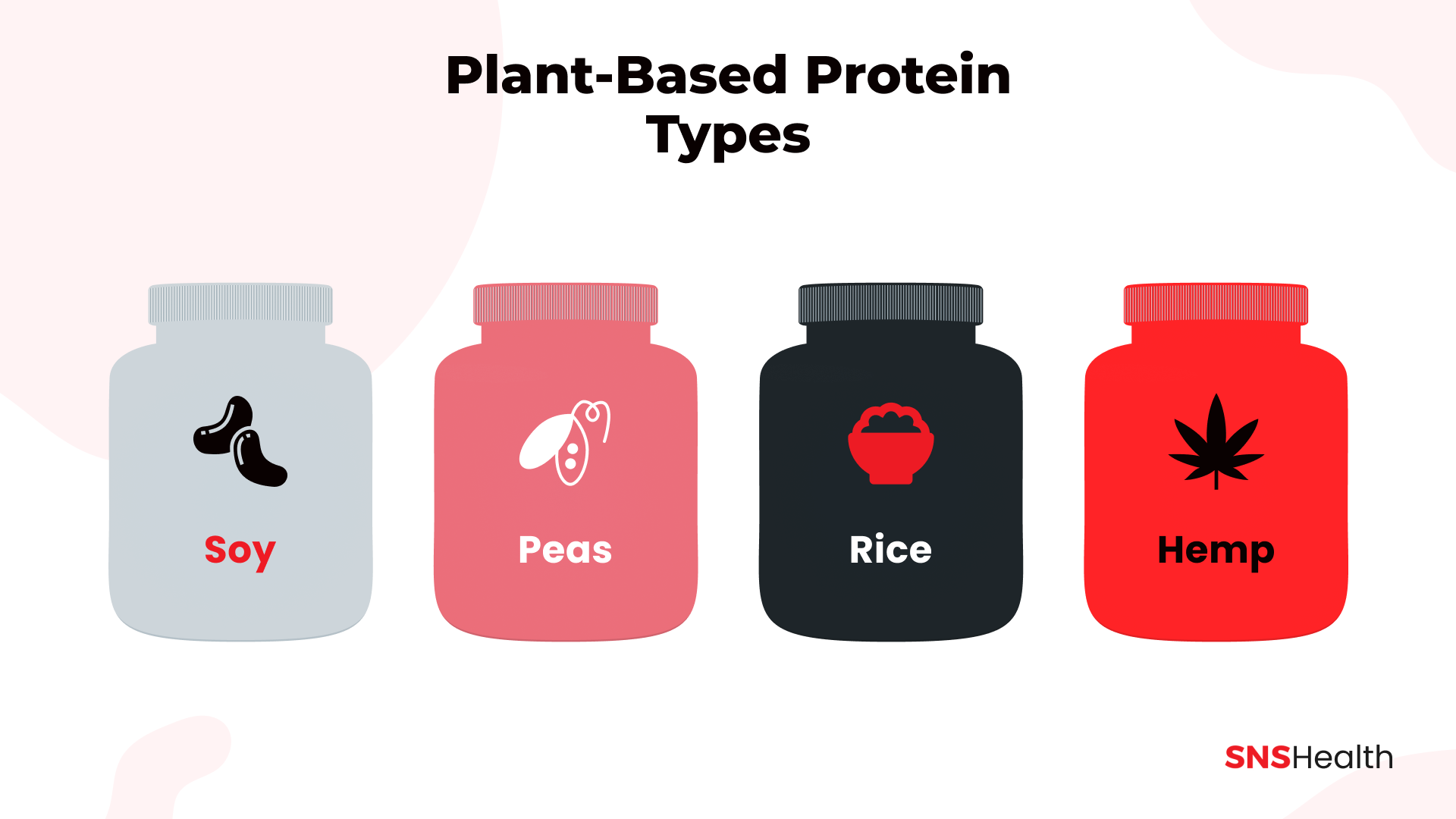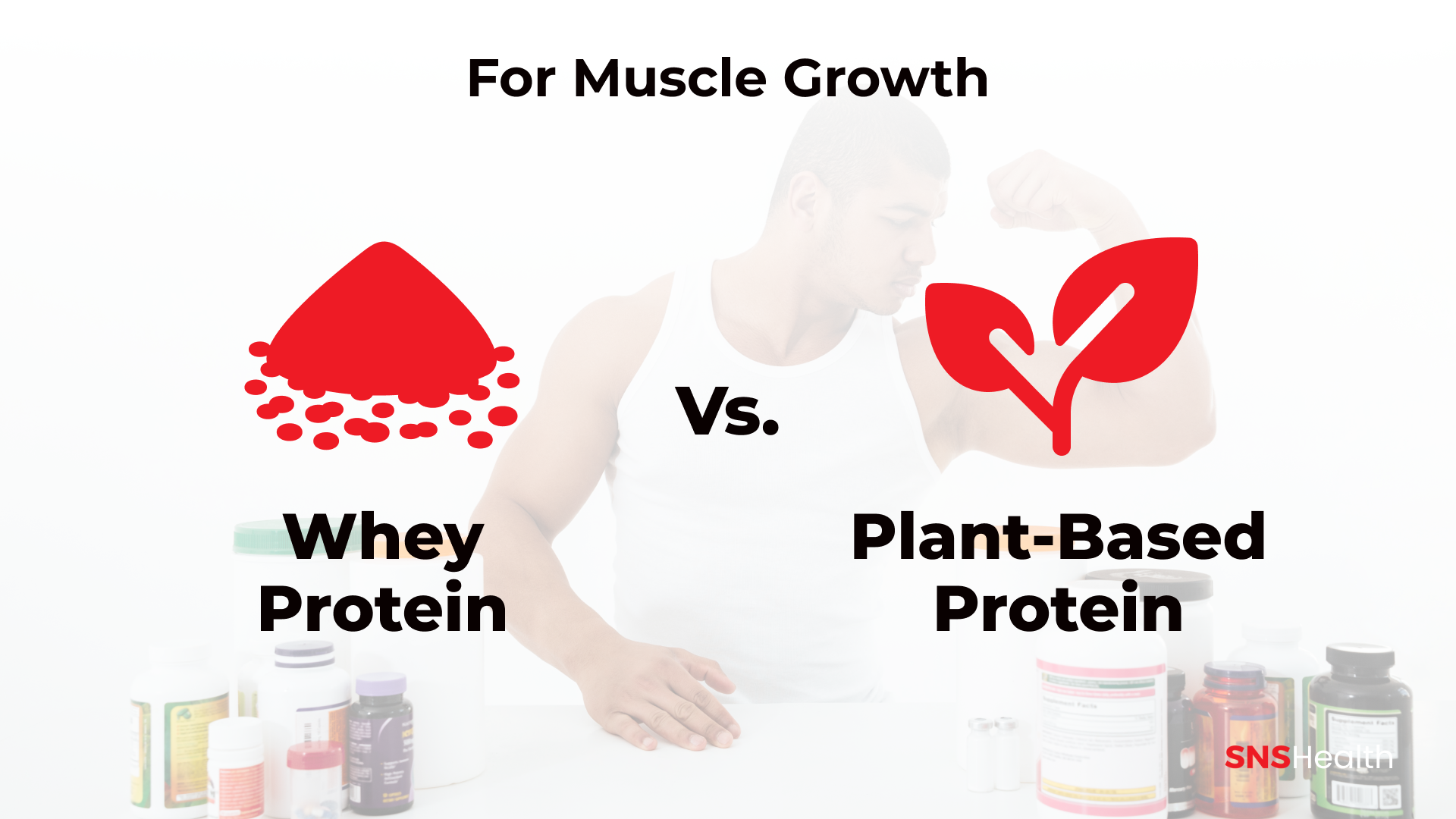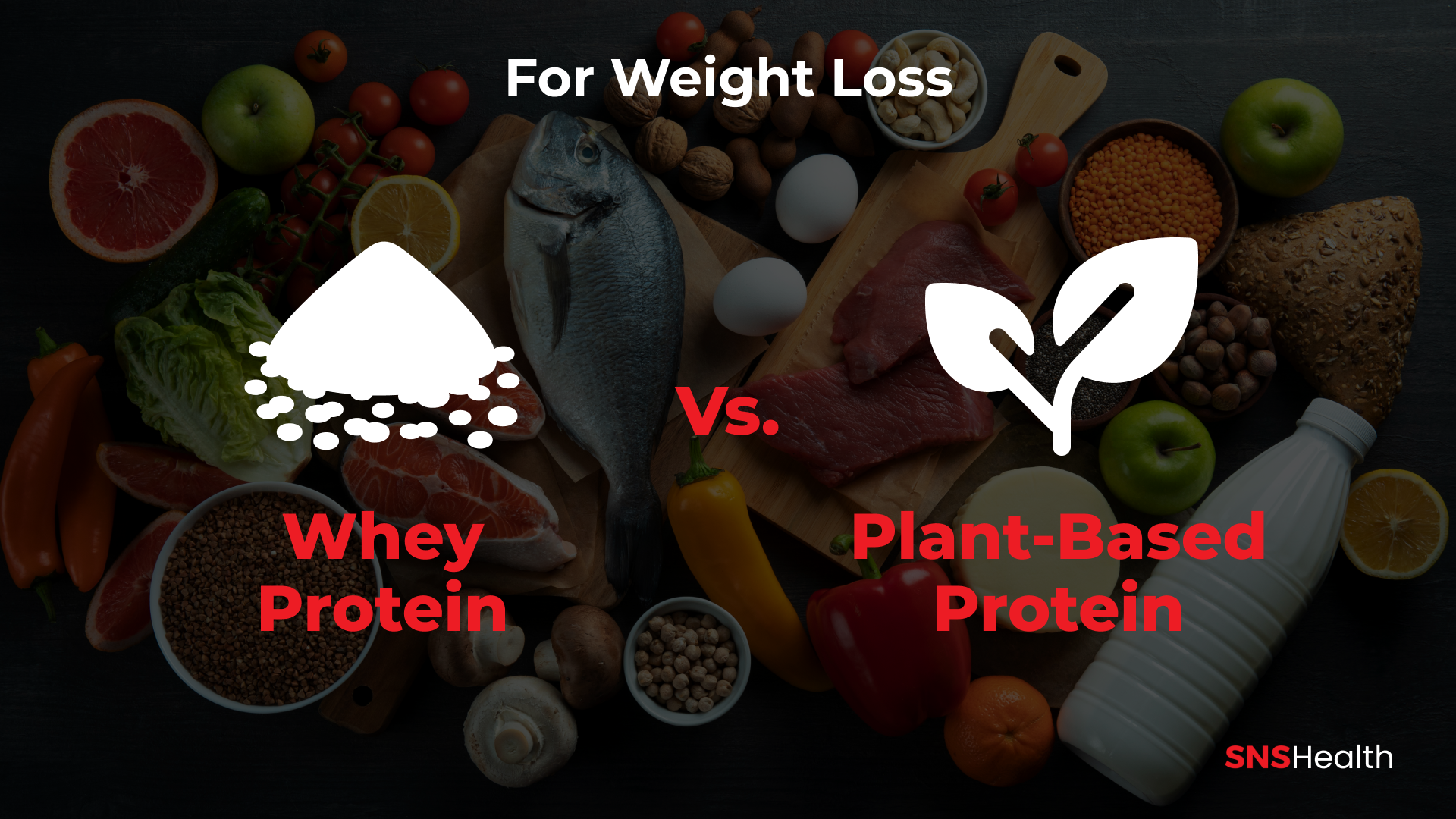In the world of nutrition, the battle of the proteins rages on, pitting the classic heavyweight, whey protein, against the rising star, plant-based protein. The choice between these two dietary powerhouses isn't just about gaining muscle or maintaining a healthy diet; it's a decision that impacts health, ethics, and the environment. Whether you're a fitness fanatic, a conscious consumer, or simply curious about the best protein source for your needs, this blog is your ultimate guide. Join us on a protein-packed journey as we dissect the differences between whey and plant-based protein, helping you make an informed choice that aligns with your goals and values.
Whey protein overview
Whey protein, derived from milk during the cheese-making process, is a complete protein source loaded with essential amino acids. Its rapid absorption makes it a favorite among athletes and fitness enthusiasts.
Whey protein types

Whey protein comes in various forms, including whey protein concentrates, whey protein isolates, and whey protein hydrolysates. Whey protein concentrates contain some fats and carbohydrates, isolates have minimal to none, and hydrolysates are pre-digested for rapid absorption. Each type serves specific dietary and nutritional needs.
Whey protein benefits
- Muscle building: Whey protein is rich in branched-chain amino acids (BCAAs), particularly leucine, which plays a pivotal role in muscle protein synthesis. This makes it an excellent choice for individuals looking to optimize their muscle growth and recovery.
- Weight management: Whey protein can help control appetite by promoting feelings of fullness, making it an effective tool for weight management and reducing overall calorie intake.
- Immune support: Whey protein contains immunoglobulins and lactoferrin, which support the immune system, making it valuable for overall health.
- High bioavailability: With excellent digestibility and rapid absorption, whey protein gets to work in your body quickly, providing a post-workout recovery boost.
- Versatility: Whey protein is available in various forms, including concentrates, isolates, and hydrolysates, catering to different dietary preferences.
Overview of plant-based protein
Plant-based protein, sourced from plants like soy, peas, hemp, and more, is making waves in the world of nutrition. Its numerous benefits extend far beyond being a dietary trend.
Plant-based protein types

Plant-based protein derives from diverse sources such as soy, peas, rice, and hemp. These sources offer different nutrient profiles and flavors. Varieties like soy are complete proteins, while others may require combining to form a complete amino acid profile. Understanding these types allows you to customize your protein intake.
Plant-based protein benefits
- Sustainability: One of the most significant advantages of plant-based protein is its environmental impact. Plant farming typically has a lower carbon footprint and reduces the strain on natural resources, making it a more sustainable choice for eco-conscious consumers.
- Heart health: Many plant-based protein sources, such as legumes and nuts, are rich in heart-healthy unsaturated fats, fiber, and phytonutrients. These components can help lower cholesterol levels and reduce the risk of cardiovascular diseases.
- Weight management: Plant-based proteins are often lower in calories and saturated fats compared to animal-based options, making them a preferred choice for those looking to manage their weight.
- Reduced allergenicity: Plant-based proteins are generally allergen-free, making them suitable for individuals with dairy or other food allergies.
- Digestive health: The fiber content in plant-based foods contributes to improved digestive health and regular bowel movements.
Nutritional comparison: whey protein vs. plant-based protein
- Protein content: Whey protein is renowned for its high protein content, typically containing about 70-80 grams of protein per 100 grams. Plant-based protein sources, while still protein-rich, generally contain slightly less protein, ranging from 10-30 grams per 100 grams, depending on the source. This means you may need to consume a larger quantity of plant-based protein to achieve the same protein intake as whey.
- Fat content: Whey protein isolates are generally low in fat, with minimal to no saturated fat. On the other hand, some plant-based protein sources, like nuts and seeds, contain higher amounts of unsaturated fats, which can be heart-healthy but are also calorie-dense. However, many plant-based protein powders are low in fat.
- Carbohydrates: Plant-based protein sources like legumes and whole grains provide additional carbohydrates and fiber, which can be beneficial for digestion and overall health. In contrast, most whey protein isolates are nearly carbohydrate-free.
- Fiber: Plant-based protein sources are usually rich in dietary fiber, which promotes feelings of fullness and supports digestive health. Whey protein lacks fiber entirely.
- Amino acid profile: Whey protein is often considered superior in terms of amino acid profile, particularly in its higher leucine content, which is vital for muscle protein synthesis. However, plant-based protein sources can be combined to provide a complete amino acid profile, making them suitable for muscle growth and repair.
Digestibility and bioavailability: whey vs. plant-based protein
Digestibility and bioavailability are critical factors when comparing whey and plant-based protein sources.
Whey protein:
Whey protein is renowned for its high bioavailability. It is rapidly digested and absorbed by the body, delivering essential amino acids quickly to muscles. This makes it an ideal choice for post-workout recovery. The high digestibility of whey can be a plus for those with sensitive stomachs or for individuals looking to optimize their protein intake without gastrointestinal discomfort.
At SNS Health you get a wide range of options for whey protein.
If you are looking for whey protein concentrates we have Progressive Grass Fed Whey Protein, Inner Armour Whey Protein Matrix, ALLMAX Allpro, Perfect Sports PERFECT New Zealand Whey Protein, Myprotein Impact Whey Protein, and more.
If you want to buy whey protein isolates we have Dymatize ISO100 Whey, Perfect Sports DIESEL New Zealand Whey Protein Isolate, Mutant IsoSurge, ALLMAX Isoflex, and more.
And even if you want to buy whey protein hydrolysates, we have a wide collection including PVL ISO Sport Whey, Optimum Nutrition Platinum HydroWhey, Nutrabolics HydroPure, North Coast Naturals ISO Protein 100 and more.
Plant-based protein:
Plant-based protein sources, in contrast, may vary in terms of digestibility and bioavailability. Some plant proteins, like peas and rice, are close to whey in terms of bioavailability. However, others, like those derived from legumes and whole grains, may contain compounds that inhibit protein absorption. Cooking or processing can often help mitigate these issues. Combining different plant-based protein sources can also improve the overall amino acid profile and bioavailability.
Are you interested in plant-based protein supplements, we have a huge collection including EHP Labs Blessed Plant Protein, Sprout Living Epic Protein, Sunwarrior Protein Warrior Blend, OWYN Plant Based Protein Powder, Perfect Sports DIESEL Vegan Protein, and more.
Whey vs. plant-based protein for muscle growth

The quest for muscle growth often centers on choosing the right protein source. Both whey and plant-based proteins have their merits, but let's examine their effectiveness in the context of muscle development.
Whey protein
- Rapid absorption: Whey protein's quick digestion and high leucine content make it an excellent choice for those seeking to maximize muscle protein synthesis post-exercise. It provides a swift influx of amino acids, helping your muscles recover and grow faster.
- BCAA rich: Whey is abundant in branched-chain amino acids (BCAAs), particularly leucine, which is a key driver of muscle protein synthesis. This amino acid profile makes it a top choice for athletes and bodybuilders.
- Ideal for post-workout: The fast-absorbing nature of whey protein makes it an ideal post-workout option to kickstart muscle recovery and repair.
Plant-based protein
- Amino acid variety: While individual plant-based protein sources may lack some essential amino acids, combining diverse plant proteins can provide a complete amino acid profile that supports muscle growth. Combinations like rice and pea protein are particularly effective in this regard.
- Sustainable muscle building: Plant-based protein aligns with ethical and environmental concerns. It allows you to build muscle while reducing the carbon footprint associated with animal-based proteins.
The verdict
Both whey and plant-based proteins can support muscle growth, but the choice depends on your preferences and dietary considerations. Whey protein is the go-to option for those prioritizing rapid muscle recovery and maximal muscle protein synthesis. However, plant-based proteins offer a sustainable and ethical choice for muscle growth while providing additional health benefits like fiber and phytonutrients.
Whey vs. plant-based protein for weight loss

When it comes to shedding those extra pounds, protein can be your ally. But is whey or plant-based protein the better choice for weight loss?
Whey protein
- Appetite Control: Whey protein can help control hunger and promote a feeling of fullness, which can be instrumental in reducing overall calorie intake, making it a valuable tool for weight management.
- Lean Muscle Preservation: By supporting muscle maintenance, whey protein helps your body burn more calories at rest, potentially enhancing your metabolism during weight loss.
Plant-based protein
- Fiber and Satiety: Many plant-based protein sources come with a bonus: fiber. Fiber promotes feelings of fullness, aiding in appetite control and reducing calorie consumption.
- Lower Caloric Density: Plant-based proteins are often less calorie-dense than whey, making them a suitable choice for those aiming to limit their calorie intake while still meeting protein requirements.
The Verdict
Both whey and plant-based proteins can be effective allies in your weight loss journey, with their unique advantages. The choice should align with your dietary preferences and overall weight management strategy.
What should you choose?
Your decision between whey and plant-based protein ultimately hinges on your personal goals, dietary preferences, and ethical considerations. If you prioritize rapid muscle recovery and maximal protein synthesis, whey protein is your ally. However, for those seeking a sustainable and ethical choice that supports overall health, plant-based proteins offer a compelling alternative. Regardless of your choice, both options can help you meet your nutritional needs effectively; it's all about selecting the one that best aligns with your individual lifestyle and values.
Wrapping up
The whey protein vs. plant-based protein debate boils down to individual needs and values. Whey excels in muscle building, while plant-based proteins offer sustainability and ethical benefits. The choice depends on your goals, whether it's muscle growth, weight loss, or a commitment to a more sustainable, plant-powered lifestyle.








